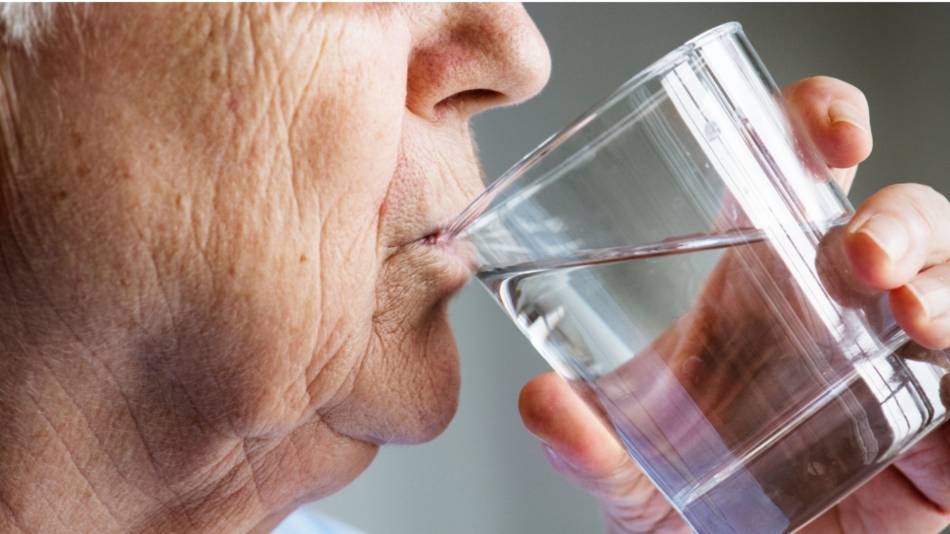
Answer:
Xerostomia, a condition commonly referred to as "dry mouth," occurs due to impaired saliva production. Decreased saliva production can result from dehydration, medication use, or medical treatment such as radiotherapy to the head and neck, as well as certain medical conditions including Sjogren's syndrome, HIV/AIDS, hepatitis C, and graft-versus-host disease (a complication that can occur after bone marrow or stem cell transplant) (Plemons, J Am Dent Assoc 2014).
Medications such as pilocarpine (Salagen) and cevimeline hydrochloride (Evoxac) may be prescribed for people with dry mouth to stimulate saliva production. Unfortunately, these medications can cause side effects, including sweating, nausea and stuffy nose, as well as less common effects such as headache and diarrhea (Cohen-Brown, Quintessence Int 2004). Response to these medications can vary depending on the extent of salivary gland damage (Plemons, J Am Dent Assoc 2014).
Due to side effects with prescription medications, people with dry mouth commonly seek over-the-counter products such as oral patches, rinses, lozenges, toothpastes, sprays, gels and gums to help improve symptoms. But do these supplements work?
Unfortunately, as discussed below, there are no oral supplements proven to treat dry mouth, and some supplements might worsen symptoms. Although a review of topical formulations for dry mouth concluded that there is no strong evidence to support their use (Furness, Cochrane Database Syst Rev 2011), preliminary evidence suggests that certain formulations might help reduce symptoms of dry mouth in some people. Lifestyle modifications may also help.
Supplements and dry mouth
As noted above, no supplement has been proven to treat dry mouth. Some might worsen symptoms.
Supplements that don't seem to help
Taking a ginger capsule three times daily for two weeks does not appear to improve dry mouth or reduce difficulty chewing among people with dry mouth due to radiotherapy. However, using a ginger spray might help (see below).
Zinc carnosine lozenges have been used to prevent oral mucositis in some people with cancer undergoing chemotherapy treatment followed by hematopoietic stem cell transplantation, but the lozenges did not reduce the incidence of dry mouth.
Supplements that might worsen symptoms
Cannabidiol may worsen dry mouth by inhibiting certain cells in the salivary glands.
Rhodiola and bacopa have also been reported to cause dry mouth in clinical research. Theoretically, taking these supplements may worsen symptoms in people with dry mouth.
Lozenges, mouthwashes, sprays and gums for dry mouth symptoms
While there is no strong evidence that any topical formulations such as lozenges, sprays or gums relieve symptoms of dry mouth (Furness, Cochrane Database Syst Rev 2011), preliminary research suggests that some might help.
Over-the-counter oral moisturizers, sometimes referred to as artificial saliva or saliva substitutes, are man-made substances that mimic the properties of saliva, such as buffering pH inside the mouth. However, they do not contain other essential components of natural saliva, such as digestive and antibacterial enzymes. These products cannot cure dry mouth, but they might help relieve symptoms temporarily (ADA, Last Updated 2-22-21). See our Top Pick for oral moisturizers.
Chewing sugar-free gum or sucking on sugar-free candies may also help people with dry mouth by stimulating saliva production through the mechanical action of chewing or sucking. In particular, candies or gum that contain xylitol may have added benefit, as xylitol can further increase saliva production by stimulating taste receptors. Just be aware that xylitol can have side effects such as diarrhea or gas when used in large amounts.
In addition to chewing gum or candies to stimulate saliva, using products such as XyliMelts (by OraCoat), which stick onto the inside of the mouth and release xylitol, might be beneficial.
Oral sprays containing papain, digestive enzymes in papaya, might increase saliva flow rate and help reduce symptoms such as thirst, difficulty speaking or swallowing, and requiring water when swallowing food among people with dry mouth. However, more research is needed to confirm these results. Interestingly, pineapple, which contains the digestive enzyme bromelain, is sometimes promoted as being helpful for dry mouth, although this does not appear to have been evaluated in any clinical studies (Rowe, Acta Pharma Sci 2018).
Applying a ginger extract spray inside the mouth might improve the severity of dry mouth and saliva flow among people with type 2 diabetes and dry mouth. However, more research is needed to confirm these results.
Using a mouthwash containing grape seed extract may help reduce the development of dry mouth among people undergoing head and neck radiotherapy. However, it is unclear if it helps treat dry mouth among people with other conditions. Grape seed oil (also called grapeseed oil) is sometimes promoted as a topical agent that may relieve symptoms of dry mouth when applied inside the mouth, although there do not appear to be any studies confirming this benefit.
Rinsing with a manuka honey mouthwash three times daily after meals seems to reduce the severity of dry mouth symptoms and improve saliva flow rate compared to rinsing with regular honey mouthwash or saline.
Lifestyle modifications for dry mouth
As noted in our article about finding the best toothpastes and other dental products, several strategies might help reduce dry mouth symptoms, including:
- Brush regularly to reduce decay and infections
- Avoid toothpaste with alcohol, detergents, and pyrophosphates (see our Top Pick toothpaste for dry mouth)
- Sip water or sugarless, caffeine-free drinks throughout the day
- Suck on ice chips
- Apply lip lubricants often (every 2 hours)
- Avoid salty or spicy foods, sugary foods, or dry, hard-to-chew foods
- Avoid irritants such as alcohol, tobacco, and caffeine, as well as mouth breathing
- Drink fluids while eating
- Use a humidifier at night
Join today to unlock all member benefits including full access to all CL Answers and over 1,400 reviews.
Join NowAlready a member? Sign In Here.
Join now at www.consumerlab.com/join/

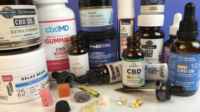
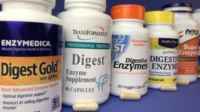
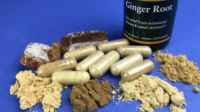
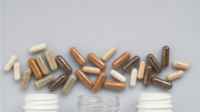

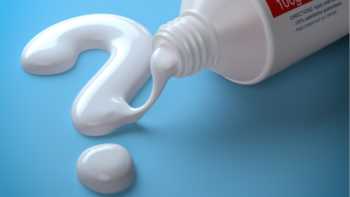

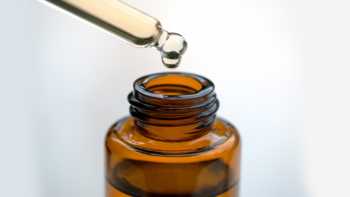
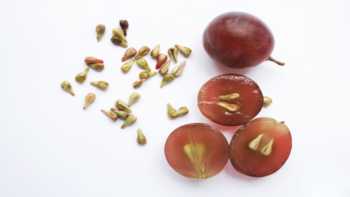





Submit your comment
This feature is restricted to active members.
Join now to add comments and get all member benefits, including over 1,400 reviews.
Join NowAlready a member? Sign in here.